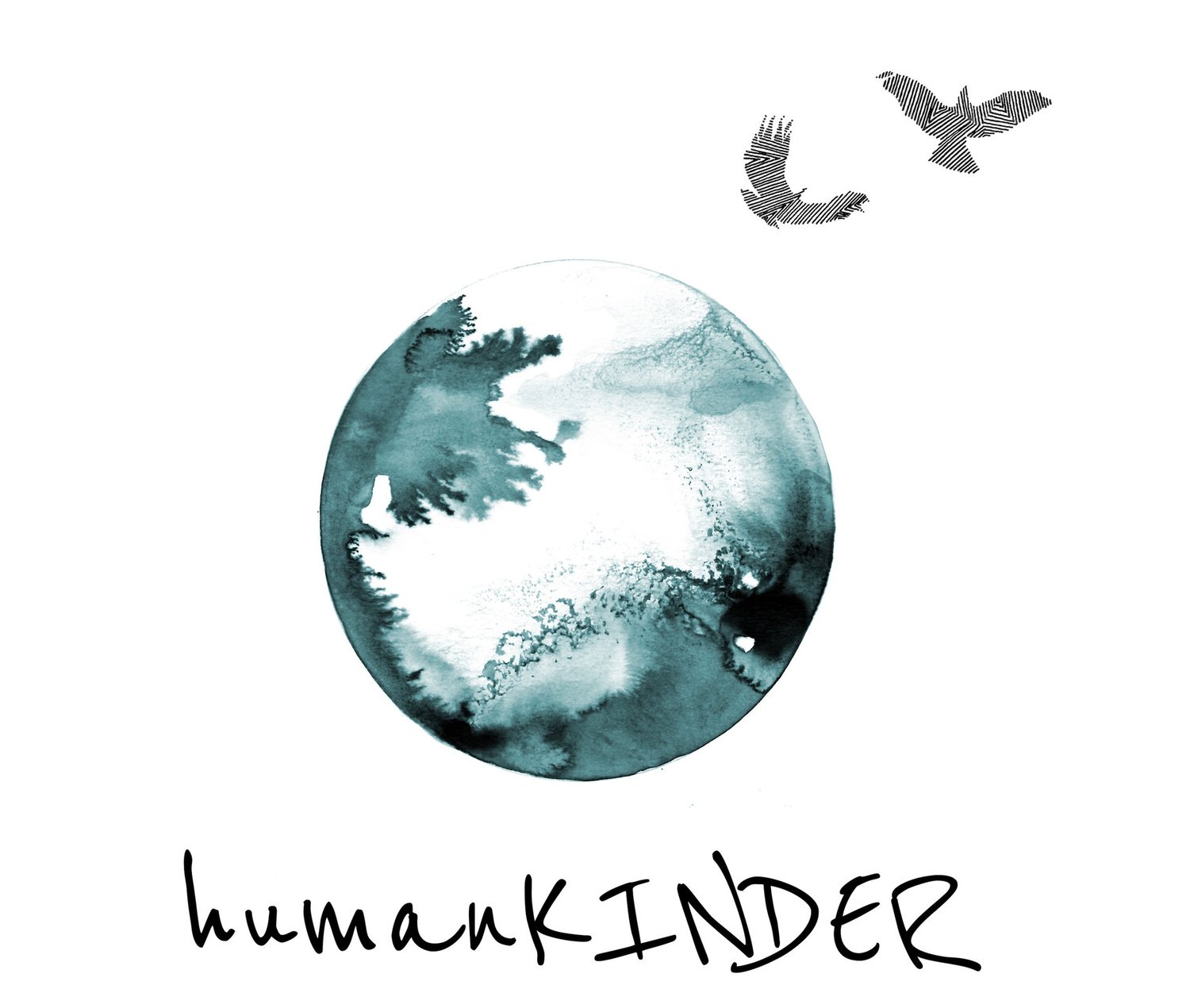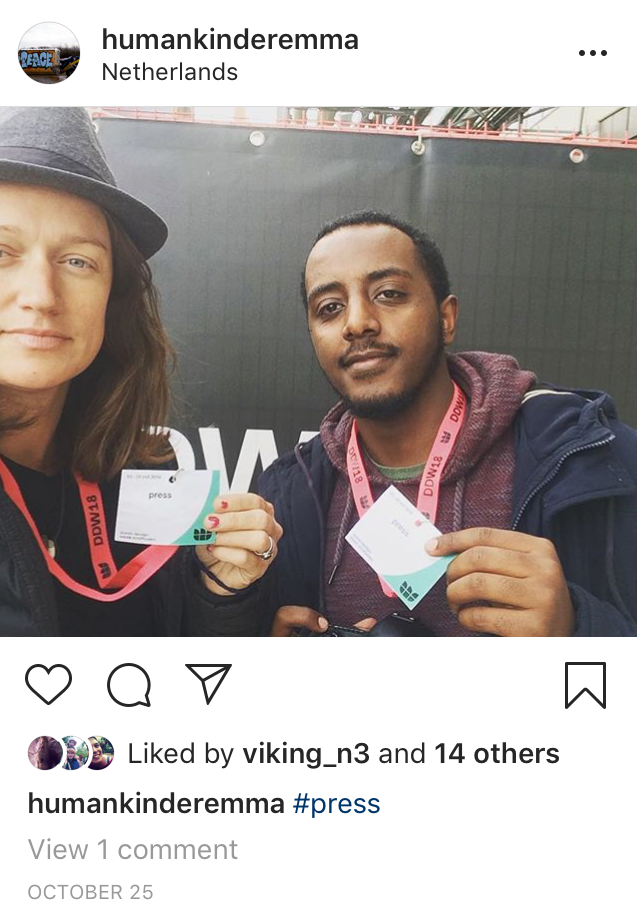Dawit and Emma first met at Dutch Design Week in 2017 cooking “recipes of HOPE” together in The Welcome Tent, a repurposed army catering tent from 1956. One year and 16k miles later, Emma was back in Eindhoven working alongside Dawit, having successfully pitched together to the Dutch Design Foundation in response to their 2018 Theme “If not us, then who?”.
They had first connected while sharing poetry and discussing Nobel Peace Prize Winner Elie Wiesel’s statement “no human being is illegal” in The Welcome Tent. Dawit’s parting gift to Emma’s family for their journey was a lamp, designed and made by him at RefuBikes from repurposed bicycle parts, a humanitarian design project offering educational opportunities, purpose and community for displaced people arriving in Eindhoven.
“Together we decide how the world will look” said DDW Director Martijn Paulen. At humanKINDER we wanted to prototype an evaluation approach so that “together” could include even voices that have been silent for so long.
Dawit and Emma proposed an evaluation methodology that they hoped would shine a light on some of the less heard perspectives, a mobile and spontaneous approach which was creative, agile and relevant, offering a street view from a RefuBike Perspective. This was about building relationships and trust.
“We would love to work with the DDW team, as we recognize the success and influence of this event as it already stands. We come to you with a full comprehension of the urgency of a humanitarian angle as a necessity in the evaluation of such renowned world-class events in the global calendar”. Further motivation was found in Dutch Design Ambassador Ravi Naidoo, Founder of Design Indaba in South Africa, internationally renowned for connecting creativity and activism with social issues.
Dawit, whose homeland is Ethiopia, was brought against his will to The Netherlands before he reached adulthood. For the last six years he has been waiting for his papers. He has been actively involved in community at Huiskamer and Refubikes and recently become a Dad, yet still faces uncertainty without legal stability in either Ethiopia or The Netherlands. He is an accomplished poet, film-maker and is now studying an application programming course at the Eindhoven University of Technology.
After leading the first Social Innovation Lab in UK government, Emma’s experiences as a volunteer in the Calais “jungle” compelled her to quit and go independent as Founder of humanitarian enterprise humanKINDER. Emma has previously attended DDW as an expert in social innovation, invited by John Thackera to present The Dementia Diaries and BrainCell Boogie at the World Design Forum; facilitated workshops to support Leon Cruickshank, Professor of Design and Creative Exchange Research at Lancaster University and co-hosted The Welcome Tent as part of the VREEMDLAND at Huiskamer DDW 2017.
Meeting Muka this year, the Founder of MukaCariza - an exclusive, handmade bag brand “where Europe meets Africa” - was an incredibly moving and special moment for both Dawit and Emma because it validated their approach.
Muka had been invited to share the story of her business at the Dutch Design Week Storytelling Sessions at Huiskamer, yet spontaneously she shared the story of her life for the first time in public. As a child, Muka and her sister were falsely adopted from their homeland in Rwanda by the Catholic Church - even though her Father was still alive - and taken to Belgium. Over the next few years they experienced horrendous abuse from which they eventually managed to escape and live on the streets, while continuing to go to school. As yet Muka has never been able to return to her homeland: for those that have made the return trip they have discovered that all evidence of this modern-day-slavery has been destroyed.
Emma believes we must take a more inclusive and agile approach to evaluation - which may have more impact reframed in the “media” sphere - if we are to challenge systemic injustice, enabling the participation and elevation of all voices. This is not merely advocating on behalf of people, but rather creating a platform where people can advocate for themselves, through their chosen form of creative expression. We can only improve our outdated systems if we elevate and listen to all voices, including those like Muka’s that have been silent/silenced for many years. For Dawit and other people at the Huiskamer - a welcoming community for displaced people arriving in Eindhoven - Muka’s story was hugely powerful because she was also telling their story, validating many of their own experiences.
Muka now has three children and a successful business. It was an honour for us to meet you and listen and learn from you. Thankyou.
Excerpts from Muka’s story and other people we spoke to at Dutch Design Week 2018 will feature our forthcoming film.
“when that day comes, people are going to be amazed. People are going to say, ah he grew in three weeks. They don’t know the past, the struggles, the five years you have been watering and nurturing your plan”






